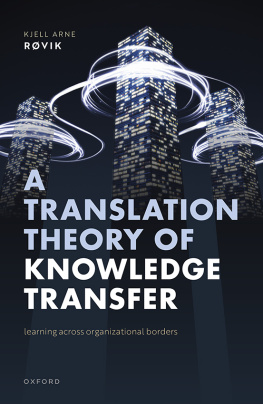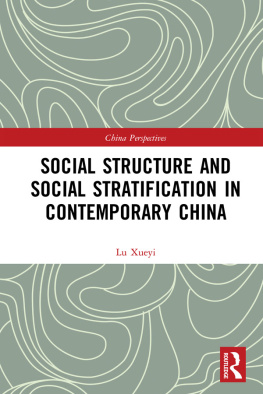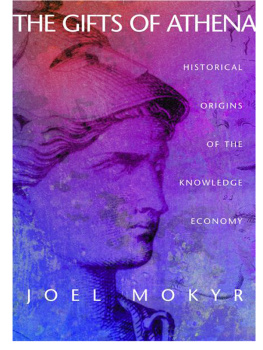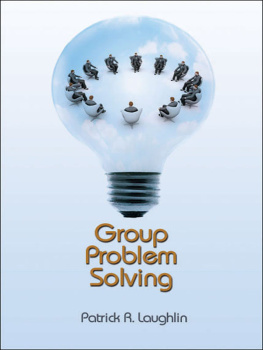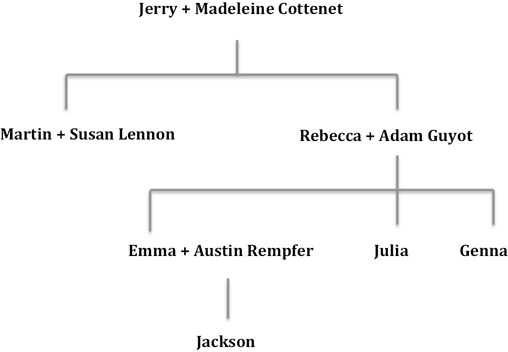The author asserts the moral right to be identified as the author of this work.
All rights reserved. Without limiting the rights under copyright reserved above, no part of this publication may be reproduced, stored or introduced into a retrieval system, or transmitted, in any form or by any means (electronic, mechanical, photocopying, recording or otherwise), without the prior written permission of both the copyright owner and the above publisher of this book.
A catalogue record for this book is available from the British Library.
This title is also available as an e-book.
My family tree was formed in the mid-1960s when I married Madeleine Cottenet. The familys evolution has sustained me throughout all these decades. Therefore, I dedicate this book to all the members of this family tree with the hope that it can help my grandchildren and my great-grandchildren.
Michael Quinn Patton
This book is a magnum opus that makes sense of the past, explains the present, and lets us peer into the future. Here is an overview of what this magnum opus addresses by unpacking complexities, identifying essences, contrasting conflicting positions, mapping interconnections, and ultimately creating a new whole in the form of an integrated understanding of our postmodern era and its future. The book presents and explains:
four stages of knowledge creation;
interconnections among and across micro, meso, and macro arenas of action; and
how to integrate social science theory, empirical scholarship, policy implications and options, and evaluation research.
The book provides:
genuine interdisciplinary knowledge integrated across all of the social sciences, breaking down academic silos while identifying crosscutting themes;
supporting evidence from a full range of social science methods and findings from surveys, in-depth case studies, big data sets, comparative analyses, international and cross-cultural conclusions, and a full range of quantitative, qualitative, and mixed/multiple methods across fields of inquiry; and
insights generated by triangulating and integrating basic social science knowledge and applied social science findings with social science theory.
The book ensures relevance to problems and solutions by
attending to both popular and widely disseminated sources and resources as well as less accessible scholarly publications and resources; and
laying a foundation with the works of great social science pioneers, creating a structural framework with contributions of eminent twentieth-century social scientists, and connecting these classic and enduring breakthroughs in societal understanding with contemporary and leading-edge researchers, theorists, and scholars of the twenty-first century.
To appreciate the dimensions, scale, and significance of this magnum opus, its accomplishments and contributions, consider for a moment how siloed, specialized, fragmented, and polarized institutions are of higher education, public policy, philanthropy, the nonprofit sector, international agencies, and media outlets, to name but a few prominent examples. Our world is filled with trivia, day-to-day sensationalism, celebrity punditry, constant tweets about the mundane, and ever-crescendoing political noise and academic debates all made indecipherable by our short attention spans and vulnerability to selective perception, the confidence heuristic (believing ever more deeply what we hear repeated over and over again), boredom, and compassion fatigue. Great thinking, looking at the big picture, placing knowledge and issues in historical context, and integrating multiple sources, kinds, and bases of knowledge are beyond rare, such thinking is practically unknown in our times.
A magnum opus that integrates more than a half-century of scholarly inquiry, empirical research, social science, theory, and practical applications doesnt come along every day. When it does, it is worth paying attention. Jerald Hage has produced such a magnum opus. It could not be more timely because he draws on the cumulative knowledge of three centuries of social science to address current challenges and likely future developments. This book, then, is for those who care about making sense of the past and present based on in-depth knowledge, committed scholarship, sophisticated analysis, and astute interpretations, all to inform future possibilities.
The issues addressed are those that will determine the future of humankind: how human beings and societal institutions will deal with global inequality, future economic prosperity, climate change, new technologies, threats to human health, nuclear brinksmanship, ongoing innovation, future knowledge creation, and the host of problems facing humanity together under the umbrella of the Anthropocene.
As an appetizer, or amuse bouche, to give a taste of the wisdom in store for readers, let me offer a few of my favorite insights from the book.
Despite the attention given by social media (if not by sociologists) to the lack of integration in contemporary societies, the real elephant in the room can be found in failures in adaptiveness or problem-solving occurring at the societal level. He goes on to explain rising levels of societal discontent and all of the related pathologies, including Nazi sympathizers and white supremacists.
The explosion of studies about social networks has centered on Facebook, Twitter, LinkedIn, and other social networking sites, as distinct from various kinds of interorganizational linkages. Therefore, this focus has missed the most interesting transformation that has occurred as a consequence of the third stage of knowledge creationthe construction of systemically coordinated products, services, and research networks that are designed to solve complex problems by means of collaborative cohesion across diverse organizational boundaries.
Anyone familiar with the complexity of the world knows that any categorization usually, and almost by definition, can be proven partially right and/or partially wrong [] Categorization encourages black and white thinking, rather than fostering a sense of the importance of observing the world in degrees.
Knowledge growth drives the recognition of new kinds of scientific problems []
The greater the task complexity, the more power must be shared. Since knowledge growth drives the complexity of tasksnot just in research but everywhereeven people without postmodern minds will have to learn to share power. He then shows how such sharing can be accomplished, including for solving adaptive problems that are created by knowledge growth.



